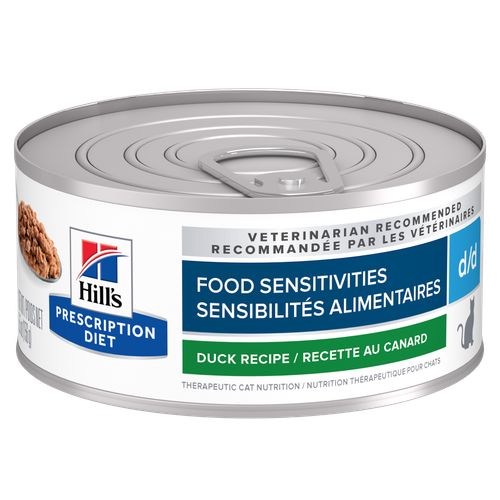
-
Find the right food for your petTake this quiz to see which food may be the best for your furry friend.Find the right food for your petTake this quiz to see which food may be the best for your furry friend.Featured products
 Sensitive Stomach & Skin, assortiment de conserves
Sensitive Stomach & Skin, assortiment de conservesHill's Science Diet Sensitive Stomach & Skin Variety Pack
Shop Now Healthy Cuisine, Adulte, assortiment de conserves
Healthy Cuisine, Adulte, assortiment de conservesHill's Science Diet Healthy Cuisine Variety Pack
Shop Now Adult Perfect Weight & Joint Support Hearty Vegetables and Tuna Stew Dog FoodShop NowFeatured products
Adult Perfect Weight & Joint Support Hearty Vegetables and Tuna Stew Dog FoodShop NowFeatured products Adult Indoor Salmon & Vegetable Medley Cat Food
Adult Indoor Salmon & Vegetable Medley Cat FoodPrecisely balanced nutrition for indoor cats with the delicious taste of savory salmon and vegetables
Shop Now Adult Urinary Hairball Control Savory Chicken Entrée cat food
Adult Urinary Hairball Control Savory Chicken Entrée cat foodSupports the health of the whole urinary system with optimal levels of magnesium
Shop Now Kitten Sensitive Stomach & Skin Salmon & Vegetable Stew
Kitten Sensitive Stomach & Skin Salmon & Vegetable StewSupports kitten growth, digestive health, nourishes skin and promotes a lustrous fur
Shop Now -
Dog
- Dog Tips & Articles
-
Health Category
- Weight
- Food & Environmental Sensitivities
- Urinary
- Digestive
- Joint
- Kidney
- Dental
- Cancer
-
Life Stage
- Puppy Nutrition
- Adult Nutrition
- Senior Nutrition
Cat- Cat Tips & Articles
-
Health Category
- Weight
- Skin & Food Sensitivities
- Urinary
- Digestive
- Kidney
- Dental
- Stress
- Cancer
-
Life Stage
- Kitten Nutrition
- Adult Nutrition
Featured articles Compare Your Pet Food's Calories to Other Brands
Compare Your Pet Food's Calories to Other BrandsCompare Hill's Science Diet dog and cat food's calories against other pet food brands and AAFCO recommended maximum calorie count.
Read More Pet Food Storage Tips
Pet Food Storage TipsDiscover how and where to store your dry, as well as canned, dog and cat food. Learn how to find the "best before" dates on all Hill's pet food packaging.
Read More The Incredible Science Behind Your Pet's Microbiome
The Incredible Science Behind Your Pet's MicrobiomeLearn what a pet's microbiome is, how it contributes to your pet's gut & overall health, and why nutrition is important in maintaining healthy microbiomes.
Read More -
Food allergies in cats
Food allergies in cats
Does your cat have signs of food allergies?
If a cat vomits frequently, has diarrhea, irritated skin, a poor coat condition or hair loss, then they may have food allergies. The most common symptoms are digestive upset or skin irritation. These signs can be long-term, recurring and should be noted to your vet.














What causes allergies in cats?
One of the most difficult things on a cat’s path to recovery is determining what is causing their allergies. Food allergies in cats are caused by a reaction to a particular ingredient, usually a protein. Food allergies may last a lifetime so the ingredient must be permanently removed from your cat’s diet.
What causes allergies in cats?
One of the most difficult things on a cat’s path to recovery is determining what is causing their allergies. Food allergies in cats are caused by a reaction to a particular ingredient, usually a protein. Food allergies may last a lifetime so the ingredient must be permanently removed from your cat’s diet.



Environmental allergies
A cat may react to certain substances in their environment — like grasses, pollen, mold or biting insects. Removing the offending allergen along with a multimodal approach can help reduce the adverse signs of environmental allergies in cats.



Food allergies
Cats may experience reactions to certain ingredients, and they are identified through food elimination trials conducted by your veterinarian. A food elimination trial is a process of finding and removing the food ingredient causing skin issues or digestive upsets. Luckily, food allergies are uncommon in cats.
Managing a cat’s allergies
Managing a cat’s allergies can be a challenging process, and your first step should be visiting your veterinarian. They will help you find the right combination of nutrition, medication, and/or topicals for your cat.


Trust
Living with a cat with food allergies can cause you both to be restless, but the road to recovery will require time, patience and trust in your vet. Remember — just like humans, every cat is unique, and the best solution will come from working with a professional to address your pet’s specific needs. Together, you’ll get on the right track to helping your best friend feel like their best self.


Nutrition
Therapeutic nutrition plays an important role in the long-term management of allergies in cats. The right nutrition can promote healthy skin from within and help alleviate your cat’s signs quickly and long-term. Even with treatment, some cats may have recurring signs that will require adjustments along the way, and your veterinarian will be a helpful resource in managing your cat’s allergies.


Medication
A vet may prescribe medication to help alleviate your cat’s signs of allergies. If you are wondering what you can give your cat for allergies, only give medication as recommended by your vet.


Topicals
Topicals can be used for managing allergies in cats. There are various deliveries for topicals like shampoos, lotions, sprays or ointments. Reach out to your veterinarian to ensure a specific topical is appropriate for your pet’s skin condition and life stage.


Understanding nutritional support for food allergies
You’ll want to ask your vet about a few things when it comes to the best cat food for food allergies. Ask about therapeutic cat food with a novel protein or hydrolyzed protein that is unlikely to cause a reaction.


Time to see a veterinarian?
If you notice behavior changes or sense something is off with your cat, it may be time to schedule a vet visit.
You also may want to ask your vet if therapeutic nutrition would be appropriate for your cat. Hill's Prescription Diet foods are developed by a team of Ph.D. nutritionists and veterinarians, and require a vet recommendation for purchase. Schedule an appointment so your vet can assess your pet's health and nutritional needs.
Talk to your vet about which cat food is right to help manage allergies in your pet

Supports kitten growth, digestive health, nourishes skin and promotes a lustrous fur

0

Supports digestive health, nourishes skin and promotes a lustrous fur

Limited ingredient cat food to support food sensitivities

